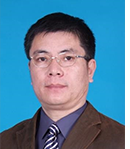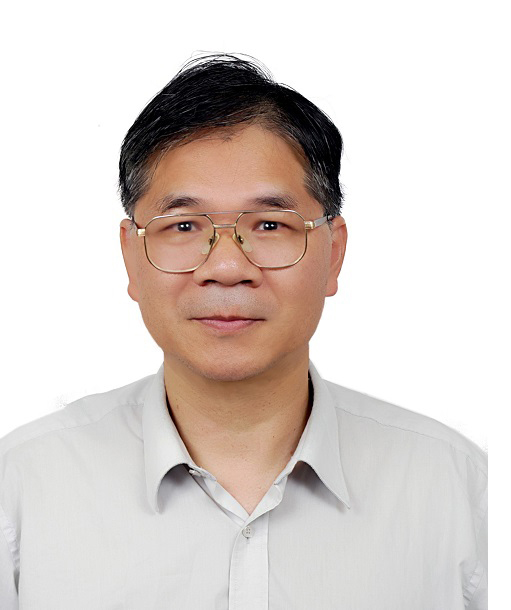Speakers
Keynote Speaker I
 |
IEEE\AIAA Fellow The title of speech: LMI-Based Multiple-View Triangulation for Generalized Cameras |
Abstract: Multiple-view triangulation is a fundamental problem in computer vision, which consists of estimating the position of a scene point by exploiting its image projections on several cameras. This talk considers the situation where the scene point is observed by generalized cameras, i.e., cameras that can be modeled by a spherical projection followed by a perspective one. Indeed, these cameras can have a much larger field of view than traditional pinhole cameras and, hence, they may be preferable in various applications. It is shown that convex optimization problems with linear matrix inequalities can be formulated to obtain the sought estimate, in particular, by introducing a criterion which consists of minimizing the angles between the projections on the sphere of the available image projections and the corresponding projections of the estimate.
Biography: Graziano Chesi is a full professor at the Department of Electrical and Electronic Engineering of the University of Hong Kong. He received the Laurea in Information Engineering from the University of Florence and the PhD in Systems Engineering from the University of Bologna. He served as associate editor for various journals, including Automatica, the European Journal of Control, the IEEE Control Systems Letters, the IEEE Transactions on Automatic Control, the IEEE Transactions on Computational Biology and Bioinformatics, and Systems and Control Letters. He founded the Technical Committee on Systems with Uncertainty of the IEEE Control Systems Society. He also served as chair of the Best Student Paper Award Committees of the IEEE Conference on Decision and Control and the IEEE Multi-Conference on Systems and Control. He authored the books "Homogeneous Polynomial Forms for Robustness Analysis of Uncertain Systems" and "Domain of Attraction: Analysis and Control via SOS Programming". He is a Fellow of the IEEE and AAIA.Keynote Speaker II
 |
Prof. Ming Xie The title of speech: Key Steps Toward Development of Humanoid Robots |
Abstract: Humanoid robots are biped walking robots which are similar to human beings. As a result, the public has a lot of interests in seeing the advances in the development of humanoid robotics. So far, the most impressive versions of humanoid robots are Honda’s ASIMO, Sony’s QRIO, KAIST’s HUBO, and Boston Dynamics’s Atlas. The new additions to the list include Tesla’s humanoid robots and many others. Therefore, it would be interesting for us to share our experiences gained from the development of Singapore’s humanoid robots since 2008. In this talk, I will adopt a pedagogic way of outlining the key steps toward the development of advanced humanoid robots. Particularly, I will explain the details from the viewpoints of energy flow, signal flow, motion flow, and knowledge flow inside humanoid robots.
Biography: Xie Ming received the B.Eng degree in control and automation engineering from East-China Institute of Textile Technology (now, under the name of Donghua University, Shanghai, China). Subsequently, as a recipient of the nation's prestigious overseas scholarship of Chinese government, he has completed the postgraduate studies and doctorate research works, and has received the Master degree from the University of Valenciennes (France) in 1986 as well as the PhD degree from the University of Rennes (France) in 1989. Since 1986, he has worked as Research Assistant at IRISA-INRIA Rennes, Expert Engineer at INRIA Sophia-Antipolis, Lecturer/Senior Lecturer/Associate Professor of Nanyang Technological University, Fellow of Singapore-MIT Alliance (SMA) (Affiliated with Innovation in Manufacturing Systems and Technology Program), Guest Professor of Huazhong University of Science and Technology (2002, 2006), Professor awarded by China's Jiangsu Provincial Government (2014), and Dean of College of Electrical Engineering and Control Science at Nanjing Tech University (2014-2016). He was the General Chair of 2007 International Conference on Climbing and Walking Robots (CLAWAR), the General Chair of 2009 International Conference on Intelligent Robotics and Applications (ICIRA), the Co-founder of the International Journal of Humanoid Robotics (SCI/SCIE indexed), Co-founder of Singapore-China Association for Advancement of Science and Technology, Co-founder of Robotics Society of Singapore. He has taught the courses such as Robotics, Artificial Intelligence, Applied Machine Vision, Measurement and Sensing Systems, Microprocessor Systems, and University Physics. In terms of scientific research, he has authored three books in English, two books in Chinese, and two edited books in English. He has published several book chapters, over 10 patents of invention, over 40 research papers in scientific journals and over 100 research papers in international conferences. He was the recipient of one best conference paper award from World Automation Congress, the recipient of one best conference paper award from CLAWAR, the recipient of one outstanding paper award from International Journal of Industrial Robot, the recipient of one Gold Prize (S$8K) from CrayQuest, the recipient of one Grand Champion Prize (S$15K) from CrayQuest, the recipient of one A-Star's Best Research Idea Prize (S$5K), the recipient of one Silver Medal from Dragon Design Foundation.
Keynote Speaker III
 |
Prof. Lu Liu The title of speech:Cooperative Control of Multi-Agent Systems via an Event-Triggered Strategy |
Abstract: Cooperative control of multi-agent systems has attracted significant interest in the systems and control community due to its potential for impactful real-world applications, such as search and rescue by a team of unmanned ground/aerial vehicles, and ocean sampling using a fleet of underwater gliders. In this talk, we will present the cooperative output consensus problem for heterogeneous linear multi-agent systems utilizing an event-triggered control framework. We will commence with an overview of the event-triggered control paradigm, emphasizing its efficiency and practicality by reducing unnecessary communication and control updates. Following this, we will present a novel distributed event-triggered control strategy tailored for the cooperative output consensus of multi-agent systems under switching network topologies. This strategy ensures that output consensus is achieved asymptotically while reducing communication demands, thus conserving valuable system resources. Notably, the continuous monitoring issue and Zeno behavior—the phenomenon where an infinite number of events are triggered in a finite time, potentially causing system instability—can be avoided.
Biography: Dr. Lu Liu received her Ph.D. degree in 2008 in the Department of Mechanical and Automation Engineering, the Chinese University of Hong Kong. From 2009 to 2012, she was an Assistant Professor at The University of Tokyo, Japan, and then at The University of Nottingham, United Kingdom. She then joined City University of Hong Kong, where she is currently a Professor. Her primary research interests include networked systems and control, robotics, and intelligent control. She has published over 100 international journal papers and received several best paper awards at flagship conferences, including the Guan Zhaozhi Award at the Chinese Control Conference in 2008, and the Shimemura Young Author Award at the Asian Control Conference in 2017. In 2022, Dr. Liu was a recipient of the Excellent Young Scientists Fund (Hong Kong and Macao) from the National Nature Science Foundation of China (NSFC). Since 2020, Prof. Liu has been consistently listed among the World’s Top 2% of Most-Cited Scientists, compiled by Stanford University. Dr. Liu has served as an Associate Editor of IEEE Transactions on Cybernetics, IEEE Transactions on Fuzzy Systems, IEEE Robotics and Automation Letters, Control Theory and Technology, and Unmanned Systems. She served on the organizing committee of several international conferences including General Chair of the 2022 IEEE International Conference on Real-Time Computing and Robotics, and General Chair of the 2022 IEEE International Conference on Control and Automation.
RCVE 2023 Speaker Gallery
 |
 |
 |
| Prof. Ching-Chih Tsai IEEE Follow National Chung Hsing University |
Prof. Graziano Chesi IEEE Follow The University of Hong Kong |
Prof. Chinthaka Premachandra IEEE Senior Member Shibaura Institute of Technology |